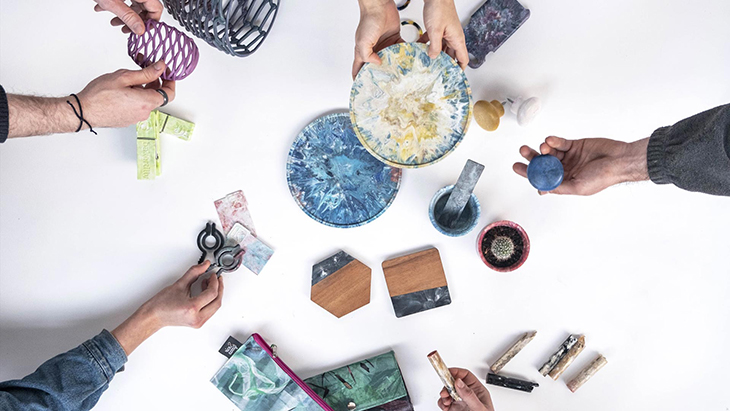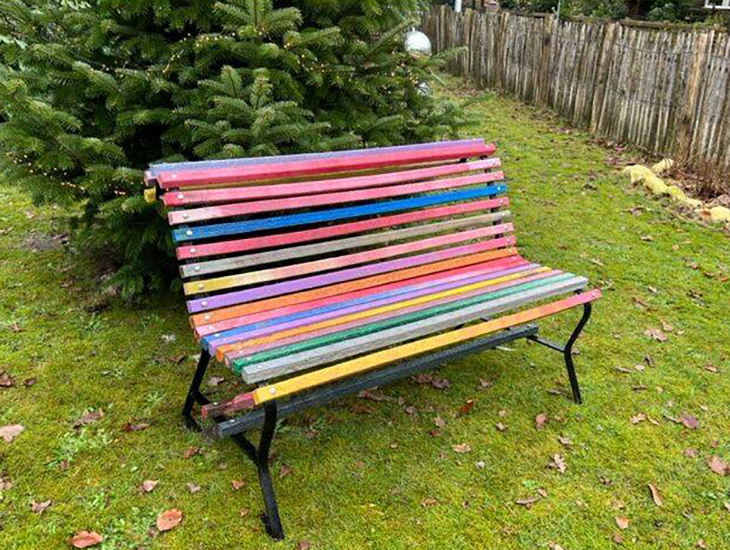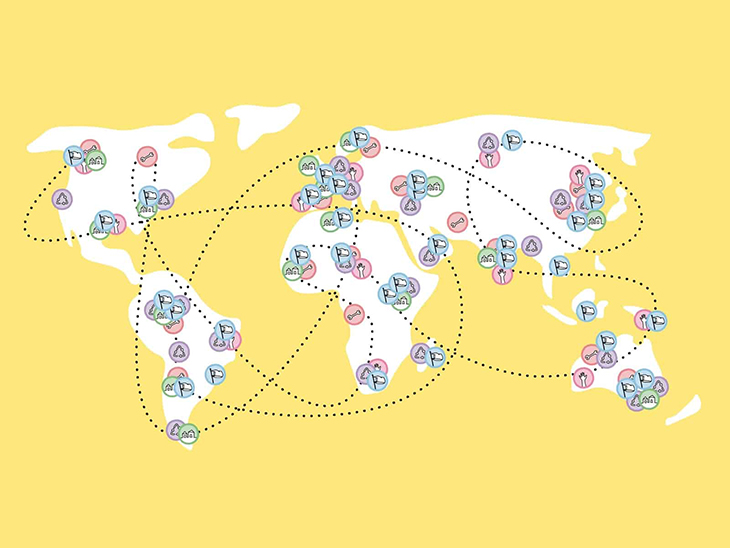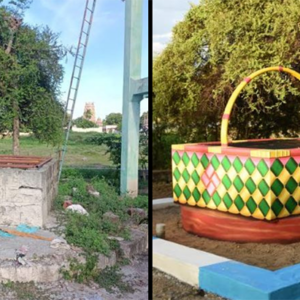
Landfills have been a problem for generations. More so in forced refugee camp areas where people who have lost their homes and the chance to live at peace in their motherland with no choice but to sweat it out in makeshift tents with no basic plumbing, water sources or place to throw their trash.
One such refugee camp located in the northern Sahara has been surviving like this for years, and their sandy, makeshift landfill is now filled with waste that comes from all the international aid in necessary supplies such as food, water, and medicine, for their basic survival.
But finally, they have their hands on a machine that is giving their once useless trash a major makeover. These small and relatively-portable plastic recycling machines can actually turn camp waste into bricks, furniture, and many other useful objects. Trash is fed into two machines, which either melts them into blocks, or presses the plastic waste into sheets.
The project, which is called Precious Plastic, is far from being just another kind of government aid. Founded by Dave Hakkens, he began the project as part of his studies at the Design Academy in Eindhoven back in 2012. His plan is to train an entire workforce at the camp by donating machines and teaching the refugees how to build a business from trash.
When it comes to alleviating poverty and teaching people how to rebuild their lives, entrepreneurship is something that goes a long way, and the leaders at Precious Plastic project know this.
Adele Peters from Fast Company, spoke with Joseph Klatt, who happens to be the managing director at Precious Plastic. According to Klatt, the camp has a “large refugee population there with a high unemployment rate.”
He added, “Everything is brought into the camps, so there’s not a lot of economic activity going on. And secondarily, there’s a lot of waste in the camp. [This solution helps in the creation of] a new business from processing the plastic waste and providing some economic activity for the refugees.”
All the machines – which consist of shredders, smelters, washer/dryers, and presses – were packed up into one shipping container in 2021 and sent to the refugee camp.
Once the machines were in place and the refugees at the camp were given basic beginner instructions, they were able to make chairs and desks for the school, benches, and tea sets all to support the widespread drinking habit in the Sahara.

Notably, Precious Plastic doesn’t consider themselves a humanitarian aid group, but rather, they call themselves an ‘open hardware plastic recycling project’ and the hope is that people from everywhere else in the world that has a plastic pollution problem, and cares about it, will start their very own recycling business using their machines as well.
Precious Plastic offers starter kits, which include work sheets and logos in order to help them kickstart their operations. Moreover, every Precious Plastic business is connected to all the others that also use their special source of technology. This allows all these entrepreneurs to share the best parts of their practices, as well as the operating data that works well for them.

The website allows the users to expand their operations by purchasing additional equipment, community-made molds for making products, as well as shop for the final products that each community produces themselves. Take a look at the website and you’ll find that their products are quite impressive and interesting, to say the least.
You can see more about the Precious Plastic movement in the video below.
What are your thoughts? Please comment below and share this news!
True Activist / Report a typo


